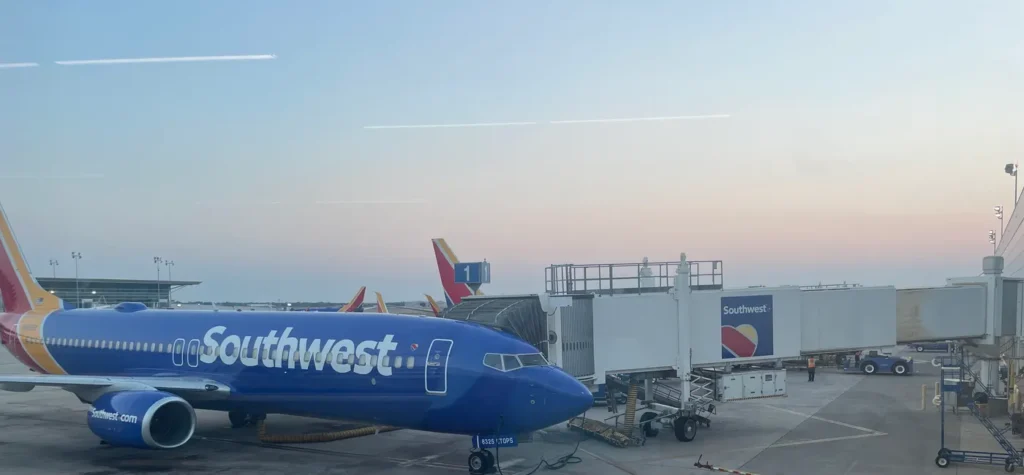Written by Lacey Pfalz, TravelPulse.com, August 12, 2025

Earlier this week, we reported on how two blind women were the only two people onboard a flight from New Orleans to Orlando after an hours-long delay that led everybody else on their flight to rebook on a faster one.
The July 14 incident involved two friends, Sherri Brun and Camille Tate, who accuse Southwest Airlines of forgetting about them after everyone else easily rebooked on another, faster flight.
It seems their disability played a role in their being unaware of the opportunity to fly on another flight, leaving them the only ones on the original flight.
It became a “he said, she said” debate over whether the airline treated them properly. The airline denies failing to provide assistance to the two blind women as required under the Air Carrier Access Act.
Still, “There needs to be some improvement in how they communicate with their passengers, especially those that have disabilities,” as Tate told a local FOX station.
“As far as accessibility policies, all of our information is found on the Disability-Related Accommodations section of the Help Center. For Customers who are blind, escort and navigation assistance is available from the airport curb to and from gates and between gates for connecting flights,” Southwest Airlines said in a statement on the matter.
“To receive assistance, Customers must identify themselves and the type of assistance they require to a Southwest Employee when they arrive at the airport, at any connection points, and when they land at their destination. In the event of a gate change, our Employees are responsible for ensuring all Customers who need assistance reach the new gate.”
Yet the incident reinforces the ever-present challenges people with disabilities face when they travel—regardless of who was “at fault,” the only two people who were left to wait for their original flight after everyone else abandoned ship were blind—which left them at a disadvantage when the airline didn’t communicate with them properly.
Accessibility isn’t just making sure people in wheelchairs have access to public spaces—though that is somehow still a challenge, even in the United States.
It’s also about thoughtfully ensuring travelers with various disabilities, impairments or other limitations receive the communication they need, and the accommodations, to travel with dignity.
The Americans with Disabilities Act, or ADA, created a bare-minimum standard for how businesses and public spaces should be designed with accessibility in mind. But it should be considered a bare-minimum—not the ultimate goal.
It’s time for the travel industry, long known as an industry that builds bridges to unite peoples and cultures, to be at the forefront of accessibility.
Universal design has to be THE gold standard for not only cities, airports and homes, but also for companies who are required not only by law, but by sheer human decency, to ensure equitable treatment and opportunity.
Southwest Airlines, maybe hire those women as accessibility consultants?
And travel industry: take notes. We are an industry dedicated to serving others. Don’t let those with disabilities fall through the cracks.
We can do better than this. Together.
